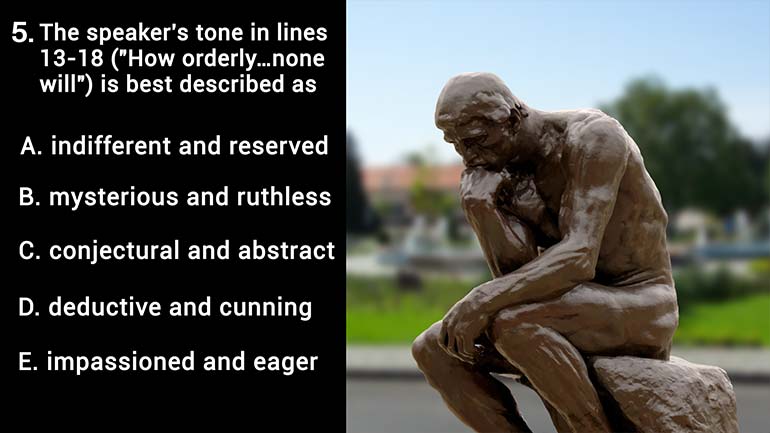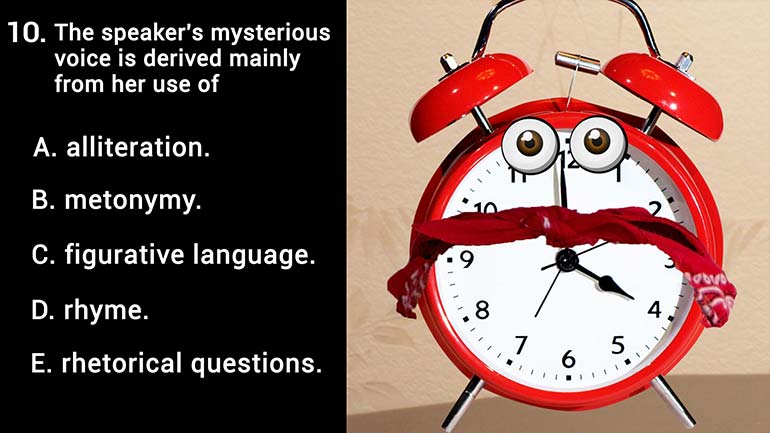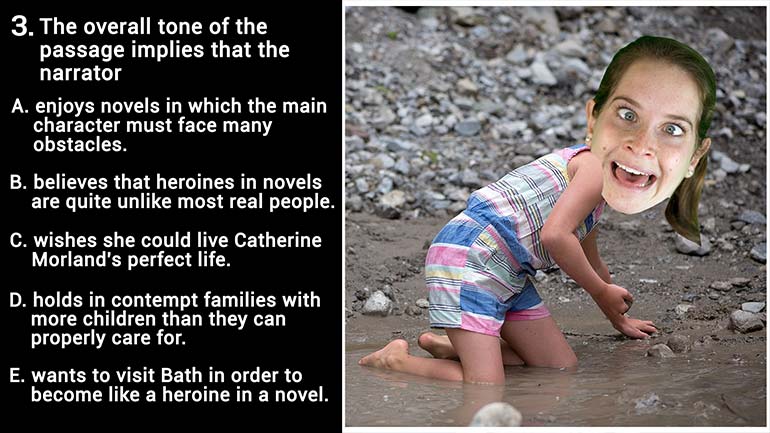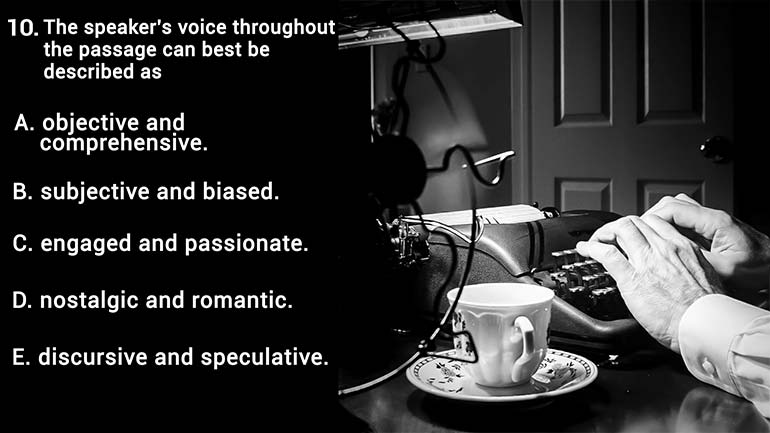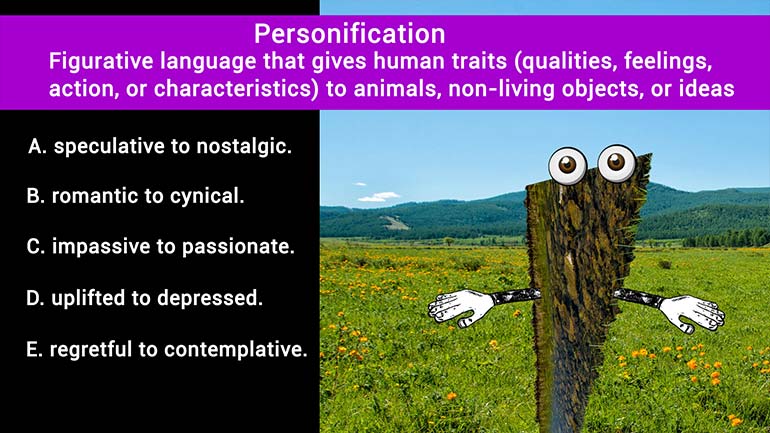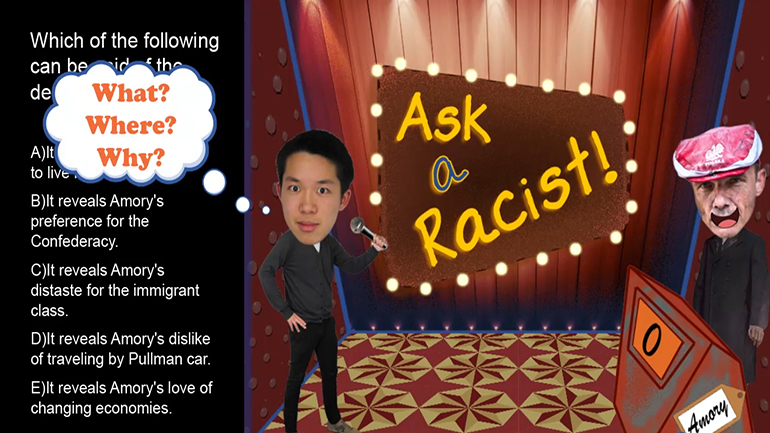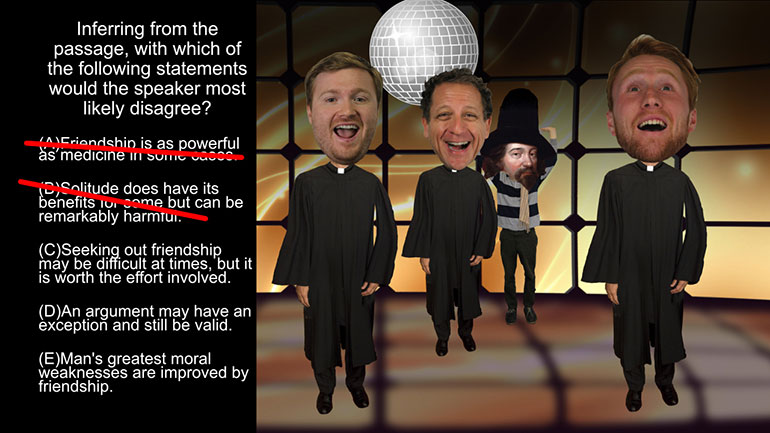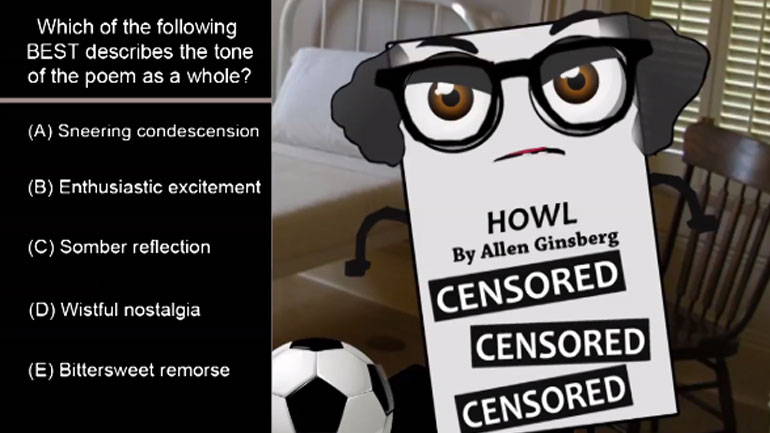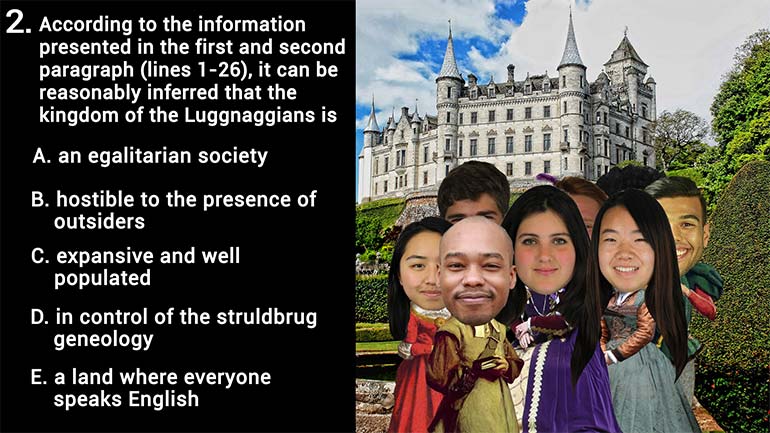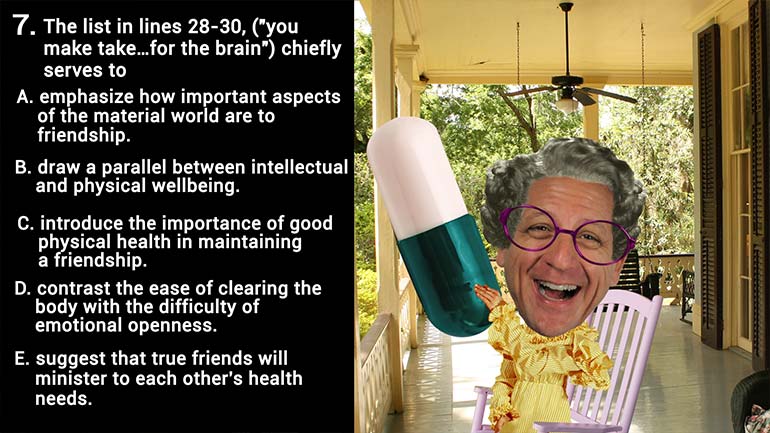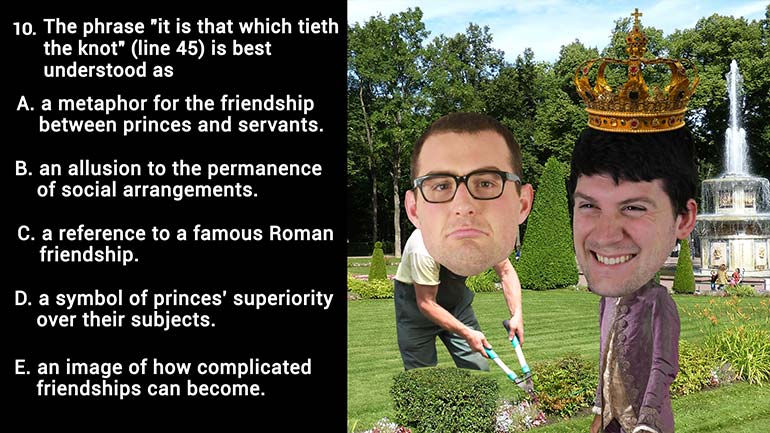ShmoopTube
Where Monty Python meets your 10th grade teacher.
Search Thousands of Shmoop Videos
Voice and Tone Videos 16 videos
The speaker's tone in lines 13-18 ("How orderly…none will") is best described as
The speaker's mysterious voice is derived mainly from her use of
The overall tone of the passage implies that the narrator
AP English Literature: Tone from Line to Line 4 Views
Share It!
Description:
The shift in tone between lines 8-9 is best described as
Transcript
- 00:00
Sorry Okay Pangle it people Here we go Next up
- 00:12
I did The shift in tone between lines eight nine
- 00:18
is best described as what That's a shift and there's
- 00:21
eight and nine So let's think wealth the speakers all
- 00:26
about the strength and impulse of the brook before it
Full Transcript
- 00:30
was covered by that pesky city He personifies the Brooke
- 00:34
I eat it leaks like it's humanized which adds an
- 00:37
element of romance But then the poem get cynical when
- 00:39
he talks about the meadow grass being cemented down right
- 00:43
like they turned life into a parking lot So the
- 00:46
answer here is Be romantic too cynical and the loser
- 00:49
ball Well because the speakers so jazzed about the brook
- 00:52
an impassive or regretful tone isn't accurate Tow how he
- 00:56
feels anyway The beginning uplift It has some merit but
- 00:59
the intensity of the rhetorical questions suggest that really shifts
- 01:02
into cynicism He's a Debbie Downer you know now depression
- 01:06
that's way down Initial speculation like a there isn't doing
- 01:10
the speaker's feelings toward the Brook Any justice He clearly
- 01:14
feels some while some way about it and just lets
- 01:18
that feeling be known So that's it The answer is
- 01:20
because romantic law too cynical
Related Videos
According to the information presented in the first and second paragraph (lines 1-26), it can be reasonably inferred that the kingdom of the Luggna...
In line 27, the adjective "inexpressible" is used
The main idea of the second paragraph (lines 24-33) can best be restated that
The list in lines 28-30, ("you make take sarza for the liver…castoreum for the brain") chiefly serves to
The phrase "it is that which tieth the knot" (line 45) is best understood as
